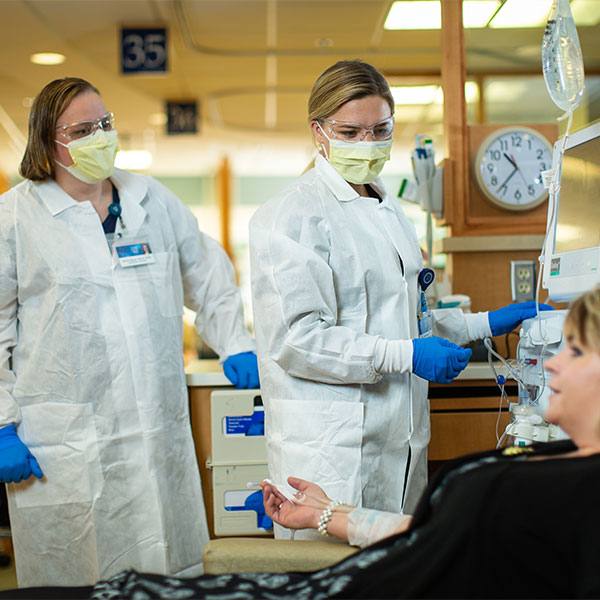-
A Lifetime of Achievement, But Not Done Yet
JACKSONVILLE, Fla. — Thomas Gonwa, M.D., a transplant nephrologist at Mayo Clinic in Florida, spent his career advancing the field of transplant research. And now he has the award to prove it. The American Society of Transplantation (AST) presented its Lifetime Achievement Award to Dr. Gonwa. Given to a senior investigator whose work has advanced the field of transplantation, this award is the highest honor given by the AST.

Dr. Gonwa began his career in the 1970s as a nephrologist. Spotting a void in treatment, he decided to pursue the then-uncommon field of transplant nephrology and quickly recognized the knowledge gaps in the field. His primary research areas focused on the effect of a failing liver on the kidneys and the effect of immunosuppressive drugs on the kidneys, as well as the development of new immunosuppressive drugs. His 188 original papers and 10 book chapters are a testament to his contributions to the transplant field over the last four decades.
In 2001, Dr. Gonwa came to Mayo Clinic and served as the chair of the Department of Transplantation in Florida for a decade. He helped build a prominent solid organ transplant program on the Florida campus and supported all research activities related to solid organ transplants.
“Dr. Gonwa’s award is a huge deal for us,” says Burcin Taner, M.D., the current chair of the Department of Transplantation at Mayo Clinic’s Florida campus. “We are very proud to have a member of our department and Mayo Clinic Florida who received this prestigious award. It tells the rest of the world that this is a world class transplant program. His contributions as a researcher, mentor, and leader have been invaluable to the transplant program in Florida.”
While acknowledging the impact of his earlier work, Dr. Gonwa remains focused on the future. Recognizing the need to move towards regenerative medicine, he has guided Mayo Clinic to make it a focus for the transplant field.
“I like to say I’ve seen one revolution in transplantation,” says Dr. Gonwa. “If we’re really getting to the point of organs that last forever, without drugs, then we need a paradigm shift. That will be regenerative medicine.”
In an effort to expand regenerative medicine in Florida, Dr. Gonwa is working to expand the Human Cellular Therapy Lab as well as supervising the build-out of regenerative medicine therapy suites for delivery of regenerative services. While continuing to mentor renal fellows, he is currently working on several research projects. One focuses on the effect of the current lung allocation system on the costs of lung transplantation, effect on patients waiting for lung transplants and survival after transplantation. Another is using a procedure that minimizes swelling in donor lungs to expand the pool of lungs available for transplant. The third focuses on preparing stem cells and their products for clinical use.
This begs the question – can the same researcher receive two lifetime achievement awards?
-Katie Cottam, June 23, 2016







